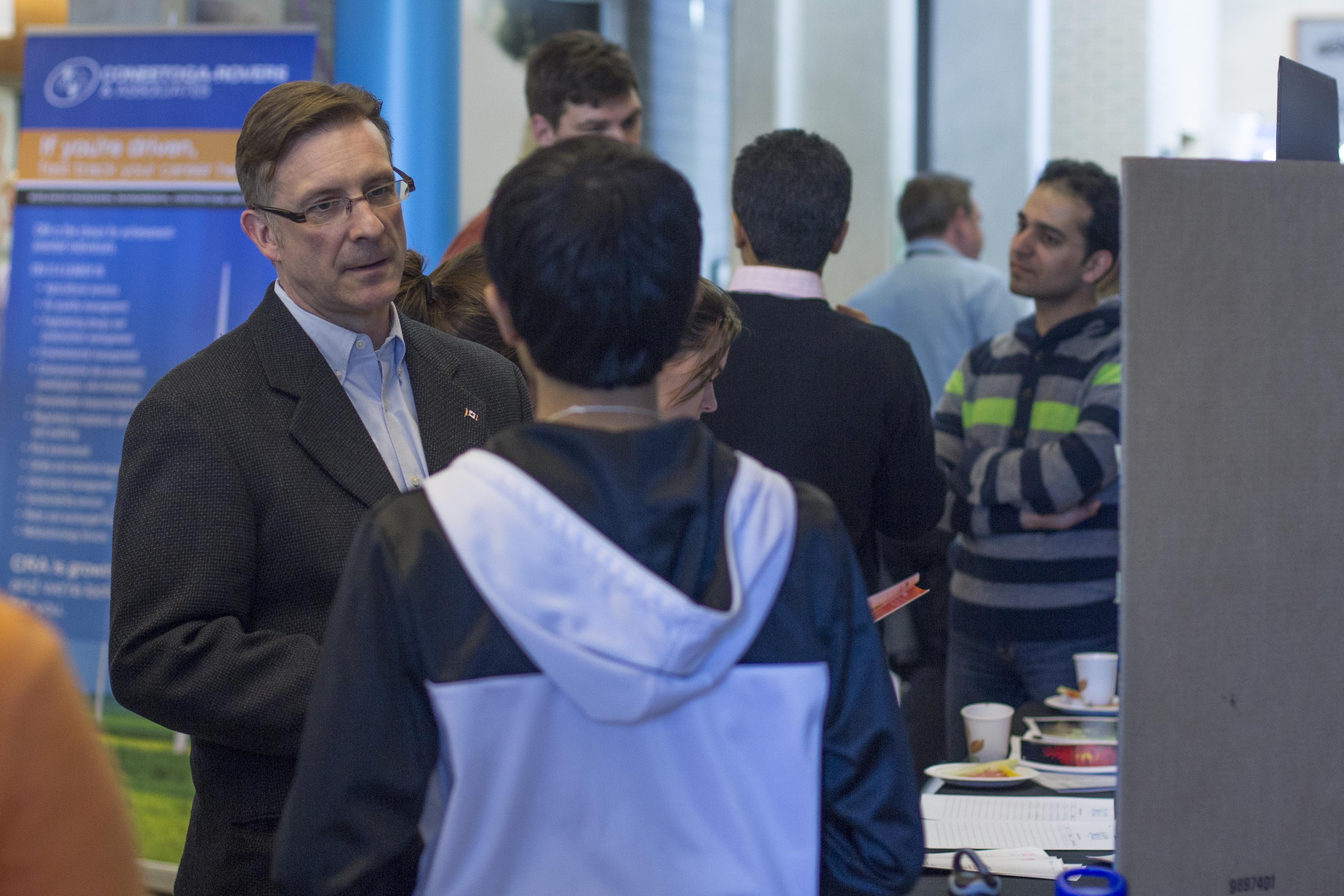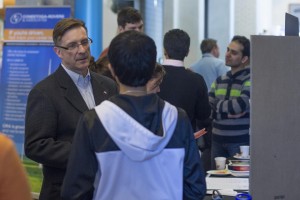World Water Day celebrated in K-W


On Mar. 21, World Water Day was hosted and celebrated at the University of Waterloo (UW) in conjunction with Wilfrid Laurier University to raise awareness about water and issues regarding this renewable resource.
Robert Gillham, director of the Water Institute at UW, explained that the purpose was to gather those who have similar interests in water and energy, which was the theme of the event.
“I would say it’s more of a raising awareness effort. So we have 100 to 200 people meeting with each other all in the interest of water, broadly reaching perspectives and raising awareness,” said Gilham.
“Some of those issues are good, some not so good,” she added.
The event consisted of two keynote speakers, a student poster contest and a job fair. The informal partnership between both universities began due to each school’s teaching and research programs in water.
Combined interests led to the development of a joint event.
One of the issues with water was addressed by the first keynote speaker of the day, Cecelia Brooks. Brooks is the research director and indigenous knowledge specialist for the
Assembly of First Nations Chiefs in New Brunswick and the water grandmother at the Canadian Rivers Institute.
Her speech focused on land and water contamination and how it has affected the health of First Nations peoples.
Contamination occurs during the process of development, during which chemicals can spread, especially through wild plants, animals and water.
According to Brooks, consultation between the government and the First Nations people must happen before any change occurs in the area they inhabit.
“[Consulting] is not just a one-off conversation, it’s not something where the government comes in, ‘we’d like to tell you about this project that’s happening: is it yay or nay?’
“It’s about us being involved,” said Brooks.
Brooks concluded by emphasizing the importance of communication and working together to see results.
“Last but not least is to understand the trauma of colonization and that it’s not just trauma that the First Nations have experienced. People all the time are traumatized because their ancestors are colonizers,” Brooks said.
“So we’re all traumatized. If we look at it in that way, we’re all in this together. If we work together, I see changes.”
Several companies, such as Conestoga-Rovers and Associates and Echologics, were present from the water industry and participated in the newly-added job fair.
“We live in a world where in some places Wi-Fi is free but water is not,” said Rubaiya Hassan, human resources generalist at Echologics.
She continued, “our business helps reduce water leakage, so we want to be well-known in the industry and want to get to know students as well.”
Sun Baolai, a visiting student from China, attended the event because it piqued his interests in renewable energy.
“I think this conference will allow people to know more about water and renewable energy. I’m very curious and interested in this type of information,” said Baolai. I hope to learn a lot.”
Other researchers and faculty also visited the event to browse student posters and other work. Erin Jones, Ecohydrology research coordinator at UW said, “It’s a nice event for students to communicate what they’re doing to other students and professionals in water industry.”

